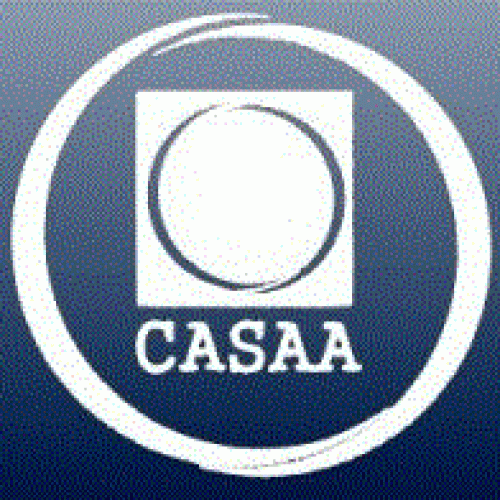Swedish Match on Snus and Regulations
Swedish Match believes that tobacco regulation will continuously become more global in character and steadily increase in scope…
Swedish Match expects that for the foreseeable future, hundreds of millions of people around the world will continue to consume tobacco, the vast majority by smoking cigarettes. Swedish Match believes that smokers should have access to viable, non-combustible tobacco alternatives, such as Swedish snus, which is scientifically documented to have significantly lower negative health effects.
Swedish Match believes that tobacco regulation will continuously become more global in character and steadily increase in scope. It is Swedish Match’s aspiration to see a move from “one-size-fits-all” tobacco regulation to an approach that takes into account the differences between product categories and their accompanying risk profiles.
Smokeless tobacco regulation should ultimately be based upon standards which strive to ensure that consumers receive the highest possible product quality at the lowest possible risk i.e. product standards based on the principles of food regulation.
Existing regulatory frameworks must be respected and complied with; however, these frameworks are not necessarily always efficient, nor, in some cases, sufficient. Truly effective regulation must be evidence based, and requires an exchange of knowledge and experience between governments and industry.
The Company believes that, when determining what interventions are chosen, developed and implemented, then better regulation is achieved by maintaining focus on those who are directly affected by the regulation – consumers, customers/retailers and producers. This is why Swedish Match is monitoring relevant regulatory developments and is actively engaged with stakeholders in various ways, while recognizing that regulatory decisions will ultimately always be at the discretion of the lawmaker.
Swedish Match also monitors and evaluates the emerging scientific data, and interacts with the scientific community. Swedish Match considers itself accountable to all stakeholders in addressing and informing them about the established science and relevant product information.
Swedish Match is also committed to preventing the availability of tobacco products to minors. The Company is actively engaged with retailers to ensure that they properly understand the need to enforce required age-verification upon purchase of tobacco products.
There is a mutual understanding between Swedish Match, leading retailers and their trade organizations of the necessity for commercial stakeholders to actively work against underage purchases. Swedish Match also cooperates with retailers in order to reduce the growing volume of illicit products, which distort competition on the market.
Regulatory developments in the US
The Family Smoking Prevention and Tobacco Control Act (the Act), signed into law June 2009, empowered the Food and Drug Administration (FDA) to regulate tobacco products such as cigarettes, roll-your-own tobacco and smokeless tobacco.
Along with regulatory authority for the manufacture, sale and marketing of tobacco, the Act includes a provision that will enable a company to have one or more of its products classified as modified risk products. Products classified this way by the FDA Center for Tobacco Products (CTP) may then be marketed in a way that better reflects the risk profile agreed to by the FDA and may allow a company to make appropriate harm reduction claims.
In August, 2014, FDA accepted Swedish Match’s Modified Risk Tobacco Product (MRTP) application as complete. As of the publication of this annual report, Swedish Match still awaits the final decision from the FDA. In addition to MRTP approval, the Company is seeking to have the warning labels for its Swedish snus products changed to better reflect that these products present substantially fewer risks to health than cigarettes.
The Act also empowers the FDA to regulate other tobacco products, such as cigars, e-cigarettes and pipe tobacco. In April 2014, FDA published its proposed regulations over these products. The proposed regulations addressed certain areas, such as product health warnings and the process companies must follow to have new products approved for sales in the US. A comment period followed, and now the CTP must determine which of those comments to accept and to incorporate into proposed final regulations. At this point it is not known when these regulations will come into force.
Regulatory developments in Scandinavia
Tobacco products for oral use, except those intended to be smoked or chewed, have been banned in the EU since 1992. As Swedish snus is neither smoked nor chewed, it is prohibited for sale. Upon Sweden’s entry into the EU in 1995, the country was granted a permanent exemption from the sales ban on snus. Cigarettes and other types of traditional smokeless tobacco products, including Asian/African types, chewing tobacco and nasal snuff can all be legally sold within the EU.
In 2013, the Tobacco Products Directive 2001/37/EC underwent a process of revision. The new directive (2014/40/EU) was approved by the European parliament in February 2014 and by the European Council in April 2014. The sales ban on snus will remain in the EU. Changes that the revised EU legislation will bring are increased and amended warning labels on snus cans, and restrictions on product presentation, among other things.
EU member states shall nationally bring into force the laws, regulations and administrative provisions necessary to comply with the new directive by May 2016.
Norway, associated with the European Union through its membership in the European Economic Area (EEA), in the context of being a European Free Trade Association (EFTA) member shall comply with the new directive once the directive is incorporated into the EEA Agreement. Probably this will happen during the second half of 2016.
As of December 2015 no bills have been put forward to the national parliaments in regard to the transposition of the EU directive. However, in April 2015 the Danish parliament passed a law banning loose snus as a result of a lawsuit filed by the EU Commission claiming that Denmark had not fulfilled its obligation to fully implement the EU ban on snus. The new law went into effect as of January 1, 2016.
Swedish Match is of the opinion that:
- Regulation must take into account the relative risk among different tobacco products.
- The EU ban on Swedish snus is discriminatory, disproportionate, violates the free trade and subsidiarity principles and distorts the function of the internal market.
- The new Directive (2014/40/EU) violates the fundamental consumer right to be informed of content and product taste by banning product information disclosure on packages.
- All smokeless tobacco products should be subject to consistent and competition neutral product regulation based on product quality and consumer protection i.e. similar to food standards.
Patrik Hildingsson
Vice President Communications and Public Affairs
Swedish Match AB
About author
You might also like
SnusCENTRAL: New Columnists; New Snus; New Sites
Dr. Lars-Erik Rutqvist Joins SnusCENTRAL.org as Columnist, New Swedish Snus has Been Released, and the new SnusGEAR! SnusCENTRAL.org; the planet’s premier snus informational and social website, updated blind-folded news media
Snus News, Reviews, and Snus Sales for Week 19
A limited time 50% Off snus celebration and 3 new video snus reviews are the main topics of this week’s SnusCENTRAL Newsletter. SnusCentral.com Send to a friend Unsubscribe 50%
Tobacco Harm Reduction.org Merges with Consumer Advocates for Smoke-free Alternatives Association (CASAA)
The Consumer Advocates for Smoke-free Alternatives Association (CASAA) is pleased to announce that it has joined forces with TobaccoHarmReduction.org (THRo). The Consumer Advocates for Smoke-free Alternatives Association (CASAA) is pleased


